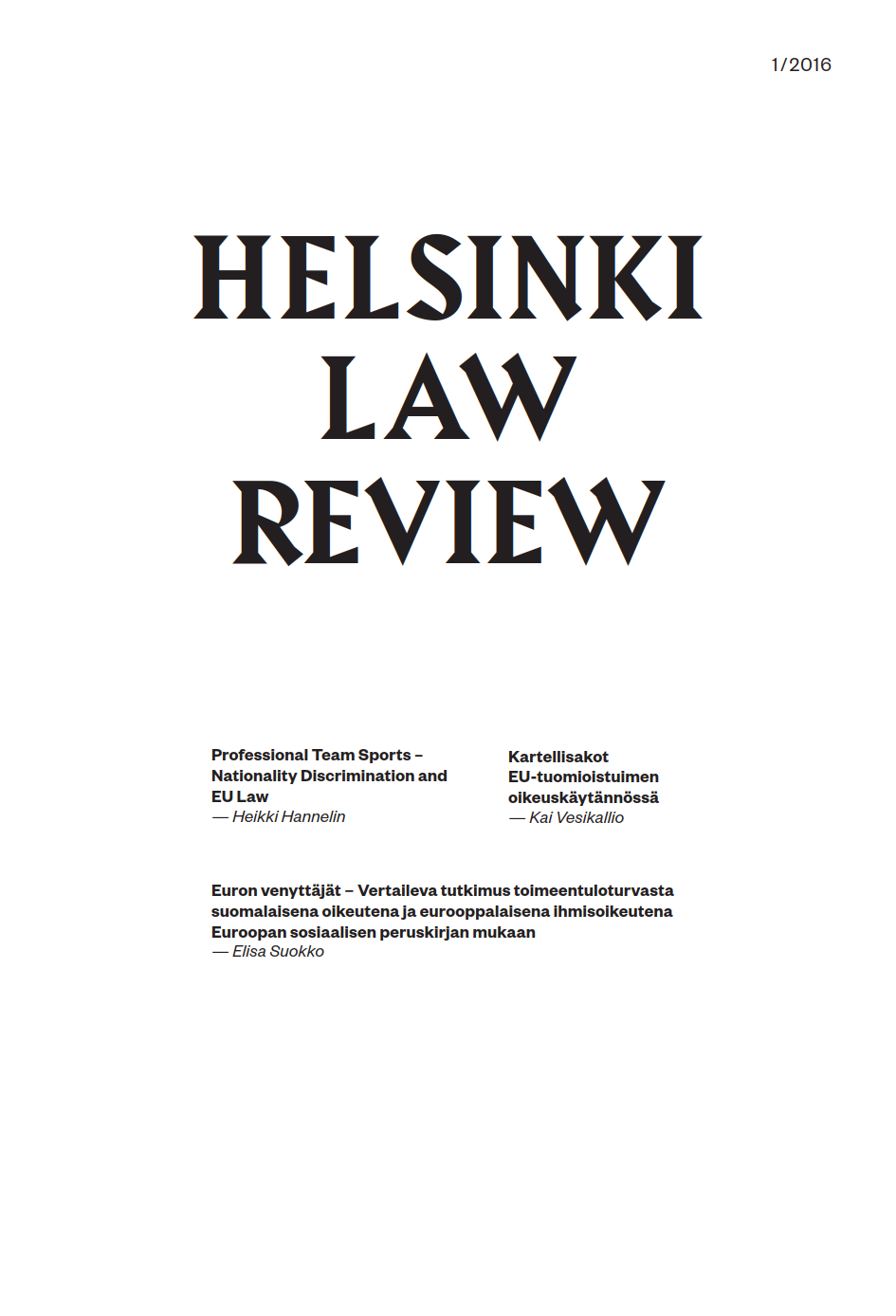Euron venyttäjät — vertaileva tutkimus toimeentuloturvasta suomalaisena oikeutena ja eurooppalaisen ihmisoikeutena Euroopan sosiaalisen peruskirjan mukaan
Avainsanat:
European Social Charter, European Committee of Social Rights, the right to social security, the right to social assistance, social human rights, collective complaints, the right to receive indispensable subsistence and careAbstrakti
In its decision of 11 of February 2015, the European Committee of Social Rights found that the level of Finnish social security is below the threshold set in the European Social Charter. Pursuant to the decision, income-substituting benefits such as basic unemployment allowance and guarantee pension are manifestly inadequate as the level of these benefits falls under the national poverty threshold. Similarly, the level of social assistance is too low. The Finnish government for its part has repeatedly contested the findings. Pursuant to the government, the Finnish social security consists of various different allowances, services and payment thresholds. Thereby its adequacy cannot be measured from the outside, in particular by the criteria put forward by the Committee.
This article compares the right to social security as provided for in the European Social Charter and in Finnish law. The comparative analysis sheds light on whether the negative decision resulted from different definition of social security or genuine shortcomings of the Finnish social security system. The first chapter analyses the material content of the right to social security and the right to social assistance as defined in the European Social Charter. The second chapter focuses on the complaint in question. In the third chapter, the definitions of adequate level of social security benefits within the Finnish system are addressed. In fourth chapter, the comparative analysis is deepened and potential reasons for non-compliance are
shortly addressed.


